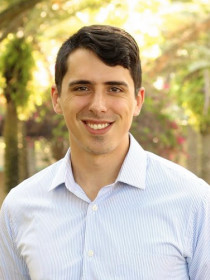
Ryan I. Logan
Connect with Ryan
About Ryan
Logan's research broadly analyzes the lived experiences of community health workers: frontline public health workers who typically come from the communities they work within. His research specifically assessed how community health workers participate in advocacy as a form of caregiving and how they are able to aid clients to circumvent health disparities within their communities.
Contributions
In the News
Publications
Draws on two ethnographic projects that explores the unique roles of community health workers and promotores de salud in rural Indiana and south Texas, respectively. Assess how these workers participate in advocacy as a form of caregiving and analyzes the roles these workers could play in assuaging the impacts of COVID-19 in their communities.
Draws on a year-long ethnographic research project examining the work done, and barriers faced, by Community Health Workers (CHWs) in advocating and assisting their clients. Notes parallels exist between work done by CHWs in the United States and globally. Assesses that while CHWs and their clients face several structural barriers to care, CHWs can be effective, especially if they adopt an approach that more directly faces the problem of structural violence.
Notes that Community Health Workers (CHWs) use advocacy as a key way to help clients overcome health disparities and raise up communities. Examines three levels of advocacy that CHWs participate in. States that as these roles become institutionalized, the role of advocacy may diminish, which should be countered, as advocacy is an essential component of the work CHWs do.
Explains how photovoice is a methodology that enhances the voice of participants through the collection of visual data (in the form of photographs) and utilizes their own interpretations as a means of analyzing this data. Details several key findings from a photovoice project that asked participants to capture data related to what it means to be a community health worker, what is an impact they have had, and what is a challenge they have overcome.
Explores the results of an exploratory research project on the role of five alternative health practitioners in the Tampa Bay region. Details the mental and physical health issues treated by these practitioners as well as how biomedical professionals may consider collaborating with these individuals.
Examines the collaborative nature of Logan's dissertation project with a community health worker organization in Indiana. Outlines the obligations researchers have toward their community members when conducting research projects.
Documents the broad findings of Logan's master’s thesis project, which examined the role of religion in a grassroots community organizing campaign for comprehensive immigration reform.
Details the potentiality, challenges, and future sustainability of the community health worker model in Indiana. Focuses on the state of Indiana, and also shows broad applications for burgeoning community health worker programs and policy makers to consider both nationally and globally.